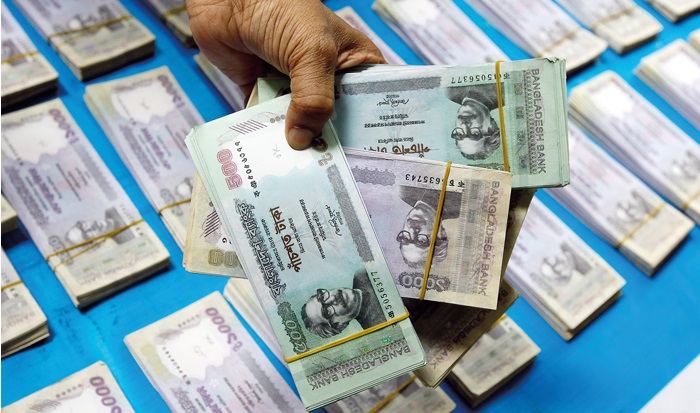After passing a horrific year marred by business slumps, old Dhaka jewellery trader Saiful Islam borrowed Tk6 lakh from a local micro lender in 2021 in an effort to ride out the pandemic fallouts.
With a fewer daily count of infection and death, he thought the Covid-19 infection had gone away as his business started to turn around until the second wave hit in May – dealing the already ailing sales another mighty blow.
"I could not pay the house rent for the last two months. Amid the crisis, the lender turned up at my apartment for repayment two days ago. They started to argue as I told them I was unable to pay," said Saiful.
"The quarrel in front of my family terrified my kid as she started to cry," the trader was upset.
"They could have come to my shop. Before the pandemic, I took loans multiple times and repaid the instalments in time," he said, adding he never had to face such humiliation ever.
Saiful is not alone, thousands of small entrepreneurs across the country are going through the same distress as Covid-19 keeps ravaging the businesses. They say the loans taken after the first wave have now turned into a huge massive burden.
Economists believe the government should continue and step up efforts so that the small enterprises survive the pandemic as the micro lenders claimed they have relaxed the repayments.
Prof Sayema Haque Bidisha, a Dhaka University economics teacher and the research director at the South Asian Network on Economic Modeling (Sanem), said as the small ventures are devastated again in the second wave, the repayment periods of the small loans could be extended.
"Besides the stimulus packages to the small venture, the government could split the small repayments into further smaller amounts. The bottom line is we need to do everything to salvage the SMEs [small and medium enterprises]," she noted.
The Microcredit Regulatory Authority (MRI), the governing body of microfinance institutions, says it has instructed the institutions to be patient in loan recovery. Government-funded Palli Karma-Sahayak Foundation (PKSF) also said they also have taken similar measures.
The MRI has issued a circular allowing the micro-credit distribution on a limited scale from 2 May. The notification did not say anything about loan recovery since the repayments were relaxed last year owing to the virus outbreak.
But, all the small lenders at root-level are collecting the instalments regularly.
Md Fashiullah, executive vice-chairman of the MRI, said, "People, especially in rural areas, need cash for recovery. So, we allowed the loan distribution on a limited scale. But the instalment collections are still paused."
Md Jashim Uddin, deputy managing director of the PKSF, said instalment collections were suspended in the pandemic last year.
"Later, I told the more than 200 institutions under us to maintain the maximum tolerance while collecting those."
"It is not right that we did not face any untoward incident while collecting the instalments. We have been facing problems collecting the Micro Enterprise credits worth Tk10 lakh each," he added.
The PKSF official said their recovery rate is now 90% though it was at 98-99% in normal times.
Borrowing again to repay the instalments
Sylhet garment trader Rahman borrowed a Tk2 lakh loan from a local non-governmental organisation (NGO).
"The sales ahead of Baishakh were lost in movement curbs. Besides, sales in Ramadan centring the Eid did not pick up this year either," he told The Business Standard over the phone.
Mashiur said the current sales were too dull to manage the daily meals for the family. "Amid the crises, the instalments are making things worse. Now I am borrowing from others to keep up the repayments," he added.
Is micro debt a death trap?
The timely repayments of the small loans are worrying traders and micro borrowers as there are several suicide incidents recently upon repayment failure.
According to media reports, autorickshaw driver Selim, 45, committed suicide in Chandpur on 18 May. He committed suicide due to the worry of repaying the instalments as he bought the three-wheelers on a small loan.














